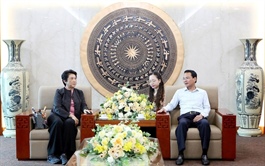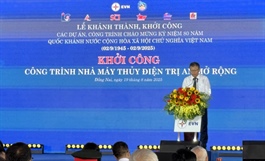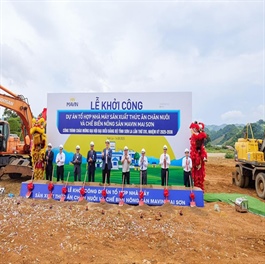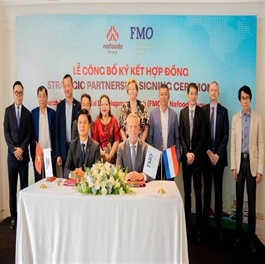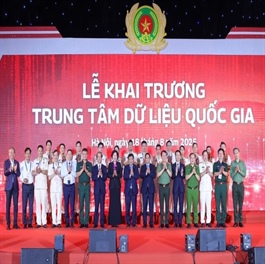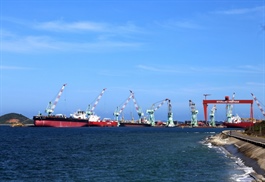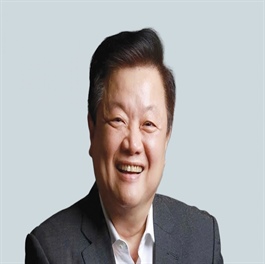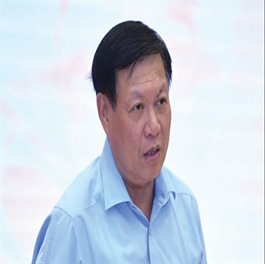Mechanical engineering sector seeks skilled workforce to stay competitive
Mechanical engineering sector seeks skilled workforce to stay competitive
On the student side, a lack of clear career guidance persists, with many still prioritising university degrees over practical skills.
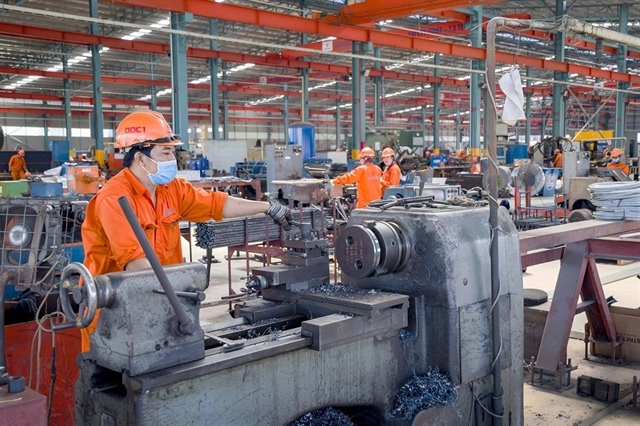
Workers of the HCM City-based DaiDung Corporation which is involved in mechanical engineering sector among others. — Photo baotintuc.vn |
Despite employing hundreds of thousands of workers, Việt Nam's mechanical engineering industry is grappling with a severe shortage of high-quality human resources, according to industry insiders.
While the industry boasts a large number of unskilled labourers and processing workers, the supply of highly skilled engineers and technicians with in-depth expertise remains alarmingly low - posing a significant barrier to meeting the requirements of modern, technology-driven production lines, they said.
Đỗ Thế Đăng, deputy director of Aviation School of New Zealand Co said that despite notable improvements in working conditions and income levels at modern factories, many young people still hold deep-rooted prejudices about the mechanical engineering industry - viewing it as hard, dirty and low-paying. These perceptions, he said, continue to discourage them from pursuing careers in the field.
Analysing the root causes behind the shortage of skilled labour, Đăng pointed to the persistent gap between vocational training and real-world production demands.
He said that many vocational schools, colleges and universities remain heavily focused on theory, offering limited hands-on experience. Much of their equipment is outdated and fails to reflect the advanced technologies currently used in modern factories such as CNC machines, industrial robots and automation systems.
While teaching staff often possess strong academic foundations, many lack direct experience working in industrial environments and are unfamiliar with the latest technological advancements.
On the student side, a lack of clear career guidance persists, with many still prioritising university degrees over practical skills. This mindset, Đăng said, has contributed to a declining interest in mechanical engineering careers.
The shortage of high-quality human resources is having serious consequences for the country’s mechanical engineering industry. Many businesses said they are struggling to expand production or upgrade technology due to a lack of skilled engineers and technicians capable of operating and mastering modern systems.
Product quality remains inconsistent, making it difficult to meet the stringent standards of global supply chains. As a result, Việt Nam's supporting industries continue to rely heavily on foreign technology and expertise, driving up costs and limiting the sector’s autonomy and competitiveness.
The aviation industry, in particular, is feeling the strain. As a sector that demands the highest standards in precision mechanics and automation, it requires engineers and technicians who are not only academically trained but also proficient in specialised design software, capable of systematic thinking, and skilled in operating modern equipment.
Recruiting personnel who meet these rigorous criteria remains a major challenge. Businesses often face high costs and long timelines to retrain new hires - sometimes even having to send them abroad for further training to meet industry requirements.
Echoing the concern, Phan Đăng Tuất, chairman of the Vietnam Association of Supporting Industries (VASI), said that most member enterprises are facing a serious shortage of highly skilled workers, particularly in critical roles such as CNC engineers, mould design engineers and automation specialists.
As multinational corporations increasingly require VASI members to integrate more deeply into global supply chains, the mechanical engineering industry is urgently seeking talent capable of mastering advanced technologies and driving innovation, rather than just performing basic processing tasks.
Tuất added that enterprises in the sector are hoping training programmes will genuinely align with the practical and evolving needs of businesses.
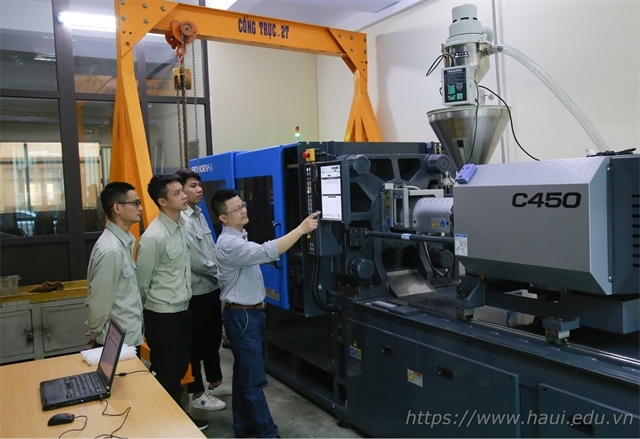
Workers of the HCM City-based DaiDung Corporation which is involved in mechanical engineering sector among others. — Photo baotintuc.vn |
According to Associate Prof Dr Vũ Thanh Tùng, deputy head of the Faculty of Mechanical Engineering at the Hanoi University of Science and Technology, attracting young people to the mechanical engineering field requires a fundamental shift in perception.
He suggested that schools should strengthen practical career guidance by organising visits to modern, high-tech factories to give students a realistic view of the working environment. Additionally, hosting talks with successful young engineers and industry experts can help inspire passion for the profession.
Tùng also stressed the importance of widely promoting information about career prospects and the attractive income potential for highly skilled engineers and technicians to draw more students into the field.
He said that narrowing the gap between training and industry practice requires stronger collaboration among schools, businesses and the Government.
Training institutions should revise their curricula with a practical focus, aligning closely with the latest technologies demanded by industry, such as industrial robotics, IoT in manufacturing, AI in design, new materials, and 3D printing, Tùng said, adding that increasing hands-on training and internship opportunities at enterprises should also be included.
Meanwhile, the State should implement policies to encourage and support educational institutions, particularly vocational schools and colleges, in upgrading equipment, developing modern laboratories and workshops, and creating training environments that simulate real-world production settings, he suggested.
Trần Việt Hoà, director of the Ministry of Industry and Trade's Department of Industry said the Government is committed to strengthening ties between enterprises in the sector and educational institutions, promoting practical training models and supporting training facilities in upgrading equipment.
The ultimate goal, he noted, is to ensure that graduates are job-ready and capable of meeting the immediate needs of businesses upon entering the workforce.
- 10:22 20/08/2025




